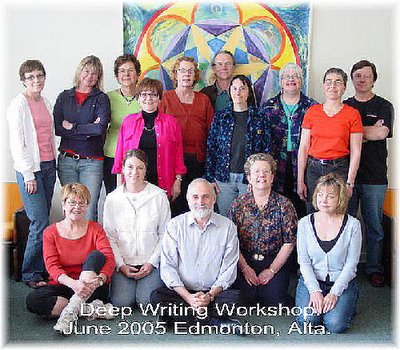
I would like to invite the writers among you to join me in celebration of the writing life by coming to Paris in July. I have mentioned my Paris workshop several times previously but today I want to describe it a bit and explain how it differs from other writing workshops you may have previously attended. You can find the “official” description here, at the sponsoring WICE site:
http://www.wice-paris.org/courses2/creative/pww/deep_writing.html
Mine is actually very different from the customary writing workshop. A customary writing workshop operates in one of two ways: you “workshop” writing with the instructor and the other participants, critiquing each other’s work, or you engage in exercises and activities meant to educate you about some aspect of the writing process. Mine operates a third way: you write deeply.
First I invite you to decide what important writing you want to accomplish during our time together. That might be reconnecting with a book (or article, essay, short story, screenplay, etc.) that you’ve put aside, tackling the part of your current piece that’s been giving you trouble, beginning a new piece that’s been on your mind for some time, or engaging with an idea that has arisen on the spot. Having chosen your focus and made your commitment, you then write. My job as you write is to be still, model intention and presence, and hold the integrity of the writing space. To someone peeking in, it would look as if I were doing nothing—but it is a very special kind of nothing.
There is no critiquing of or commenting on each other’s writing. I find that the common three-step workshop routine of writing, sharing the writing, and commenting on the writing causes people to leave the deep place they were in when they wrote and breaks the spell that arises when a dozen people write together, each on his or her own important work. In my workshop, writers have the opportunity to share what they have learned during the preceding writing stint but that sharing is very different from putting their newly-hatched writing on the table. The absence of critiquing allows people to stay connected to their writing throughout the days of the workshop.
I invited Gary Holdgrafer, a creativity coach who helped organize my Deep Writing Workshop in Edmonton and who participated in it, to describe the experience from a participant’s point of view. You can see what Gary and his wife Mary do as creativity coaches by visiting:
http://www.exploringcreativity.com/
Gary wrote about the Edmonton workshop:
“Fifteen writers gathered in Edmonton for a Deep Writing Workshop. We ranged from beginning writers to published authors, with participants working on fiction, creative non-fiction, personal essays, memoirs, spiritual reflections and stage plays. Eric presented principles and practices of deep writing throughout the week but the lion’s share of the time was spent actually writing. We wrote often and for varying lengths of time, from 15 minutes to over two hours. By so doing we had the visceral experience of ‘honoring the process,’ a fundamental principle.
“There was little ceremony. ‘Return to your writing,’ Eric said simply after a concise delivery of content. That directive is fundamental to being a writer and is what we would need to do at home. We learned how much writing we could do, even in a small amount of time, when we were able to ‘drop everything that interferes with writing’ and have our whole brain available to us. We were challenged to dispute our negative self-talk about ‘not having enough time to write’ and learned that when life gives you a moment, ‘return to your writing.’
“We were encouraged to ‘to do the work in front of you’ and not flee from it because of the anxiety that naturally arises when you try to make new meaning. We learned that being a harsh critic of our work is, paradoxically enough, often a way of fleeing from it.
“Unlike many writing courses, we did not read our writing aloud. There were no critiques. We were encouraged to write in order to honor our own process. We made our writing matter to us. We checked in regularly to report what shifts we were noticing in ourselves and in our writing. Eric reminded us that if we do not always do exactly what we had planned, ‘self-forgiveness’ is essential to keep from sinking into a stew of self-blame and stopping the work.
“Eric asked us to be the exception as he guided us through the world of publishing. ‘Give yourself permission to be rejected many times,’ he said. It is better to focus on a single instance of acceptance than on all the rejections. Participants left tired—the good tired of having really written—and pleased with what they had experienced. A community of writers had formed in that week and some of the connections made there are likely to continue.”
Here is a picture of the Edmonton group.
http://ericmaisel.blogspot.com/
Come be a part of the Paris group!
You can register at:
http://www.wice-paris.org/courses2/creative/pww/deep_writing.html
If you’re on the fence about coming, pick up a copy of A Writer’s Paris. That will tip you right over! Read more!




